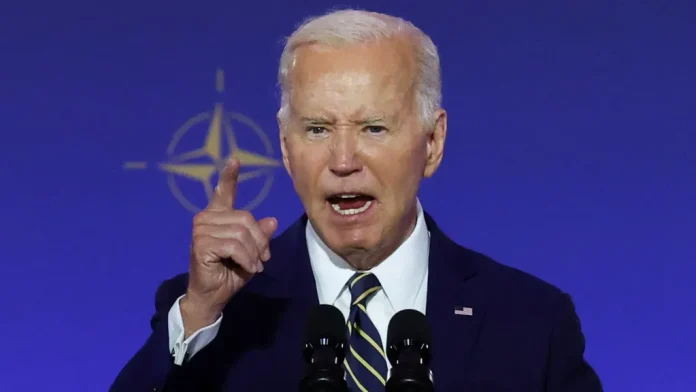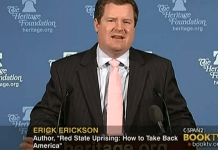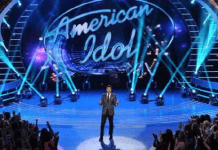President Joe Biden welcomed NATO leaders to Washington, DC, with a resolute speech aimed at reassuring allies amid global challenges and domestic political turbulence. The summit, held against the backdrop of escalating tensions between Russia and Ukraine, served as a pivotal moment for Biden to reaffirm NATO’s strength and commitment to defending democratic principles.
President Biden emphasized the increased potency of the NATO alliance, describing it as “more powerful than ever” in confronting the current geopolitical crises. Central to his message was a stark warning against autocratic regimes that threaten global stability, framing Russia’s aggression in Ukraine as a direct assault on the international order.
The critical juncture facing NATO, Biden announced augmented military assistance to Ukraine, including Patriot missile systems, underscoring his administration’s steadfast support for Ukraine’s sovereignty and independence. He asserted confidently that Ukraine would emerge victorious, defiantly declaring that “Russia will not prevail.”
Biden’s demeanor during the speech contrasted sharply with recent critiques of his leadership and vigor, particularly highlighted by his firm delivery and clarity of message. This performance sought to dispel doubts raised by political opponents and some within his own party regarding his ability to lead effectively amidst challenging circumstances.
Democratic lawmakers privately debated Biden’s leadership and future electoral prospects, revealing a somber mood reflective of internal party concerns. Calls for Biden to forego a re-election bid surfaced publicly, signaling dissent within Democratic ranks over his continued leadership and electoral viability.
Amid these domestic political dynamics, international diplomats expressed skepticism about Biden’s political future, citing concerns over his recent performance and its potential impact on U.S. leadership within NATO. Despite these reservations, Biden’s administration emphasized his pivotal role in expanding NATO membership and enhancing the alliance’s capabilities in response to Russian aggression in Ukraine.
The summit itself was steeped in symbolism and historical significance, held at the venue where the original NATO treaty was signed decades ago. Biden invoked this historical backdrop to underscore the enduring importance of NATO as a cornerstone of transatlantic security and cooperation.
The event also saw the presence of UK Prime Minister Sir Keir Starmer, who reaffirmed Labour’s staunch support for NATO and condemned Russian aggression, particularly in light of recent tragic events such as the attack on a children’s hospital in Kyiv. Starmer’s participation underscored the unity among NATO allies in confronting shared security challenges and standing firm against external threats.
President Donald Trump, in a campaign-style rally, criticized NATO allies for perceived financial shortcomings during his presidency, contrasting sharply with Biden’s emphasis on collective defense and unity among alliance members. Trump’s rhetoric served as a reminder of ongoing political divisions within the United States regarding foreign policy and defense spending commitments.
Looking ahead, Biden’s scheduled meetings with bipartisan congressional leaders and UK officials underscored ongoing efforts to strengthen transatlantic relations and reaffirm U.S. leadership within NATO. These engagements were seen as crucial opportunities for Biden to bolster domestic and international confidence in his administration’s ability to navigate complex global challenges effectively.
President Joe Biden’s address at the NATO summit in Washington, DC, represented a pivotal moment in reaffirming U.S. commitment to collective defense and international alliances amidst domestic political scrutiny and global uncertainty. His resolute stance on supporting Ukraine and confronting authoritarian threats underscored the administration’s foreign policy priorities while navigating internal political challenges at home.























